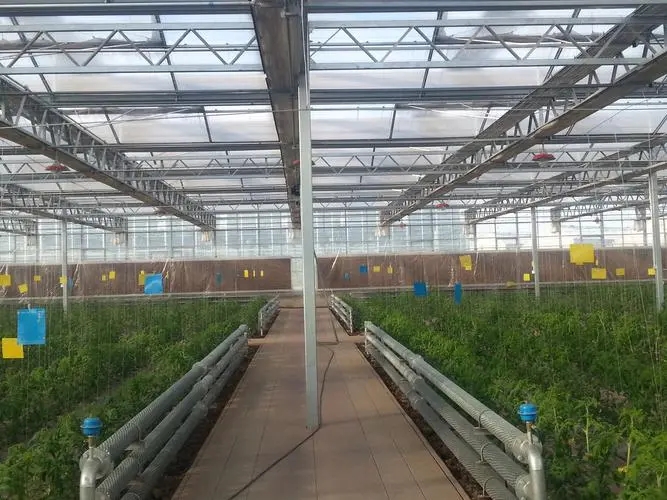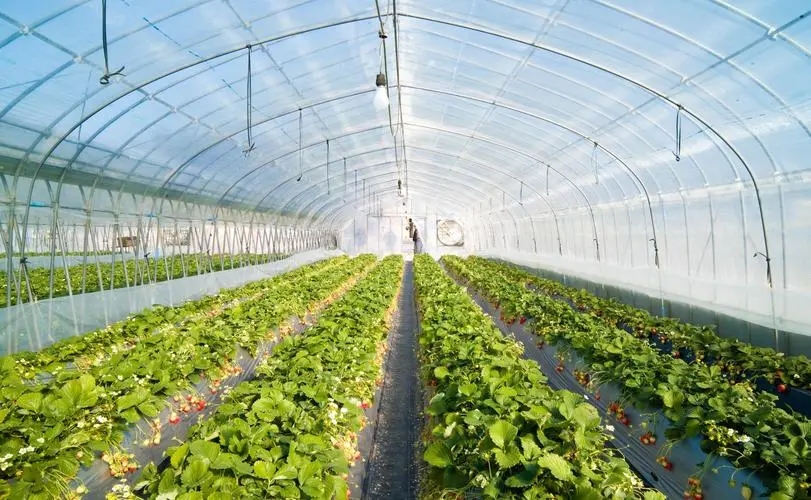

— Products —
 Consumer hotline +8618073152920
Consumer hotline +8618073152920 WhatsApp:+8615367865107
Address:Room 102, District D, Houhu Industrial Park, Yuelu District, Changsha City, Hunan Province, China
All products
The illuminance sensor transmitter uses a high-sensitivity silicon blue photovoltaic detector as a sensor. Users can configure different measuring ranges according to different measuring places. It has the characteristics of wide measuring range, good linearity, good waterproofness, convenient installation, and suitable for long-distance transmission. It can be widely used in agricultural greenhouses, urban lighting and other places.
Tel/WhatsApp:+8615367865107
Email:Arvin@niubol.com +Nearly 100 partner company in more than 68 countries. We are committed to providing high-quality, practical products to meet your needs and help you solve problems.Product Details
The illuminance sensor is a sensor that converts the illuminance into an electrical signal, and the output value is measured in Lux. Light is an indispensable condition for photosynthesis;Under certain conditions, when the light intensity increases, the intensity of photosynthesis will also increase, but when the light intensity exceeds the limit, the stomata on the leaves of the plant will be closed, and the intensity of photosynthesis will decrease.Therefore, the use of illuminance sensors to control illuminance has become an important factor affecting crop yield.

Illumination sensor product introduction:
The illuminance sensor transmitter uses a high-sensitivity silicon blue photovoltaic detector as a sensor. Users can configure different measuring ranges according to different measuring places. It has the characteristics of wide measuring range, good linearity, good waterproofness, convenient installation, and suitable for long-distance transmission. It can be widely used in agricultural greenhouses, urban lighting and other places.
Illumination sensor technical parameters:
Measuring range: 0-200000Lux
Wavelength range: 380 nm-730 nm
Accuracy: ±7%
Power supply:
DC 12V
DC 24V
Illumination sensor output form: 4~20mA/0~5V/RS485
Instrument cable length: 2.5 meters
Load resistance: Voltage type: RL≥1K
Current type: RL≤300Ω
Working temperature: -10℃~70℃
Relative humidity: 0~80%RH
Product weight: 170 g
Instructions for use:
Wire the sensor according to the instructions in the wiring method, then place it at the position where the light intensity is to be measured, turn on the power supply and the switch of the collector, and then the light intensity of the measurement point can be obtained.
Light intensity illumination sensor detection lighting intensity Lux Analog output 0-5V/RS485/4-20mA for Greenhouse agriculture IOT Application
Light affects plant growth and development in three main ways: light intensity, light duration (photoperiod) and light composition (light quality).
Light intensity can have a great impact on plants, and all green plants must be in sunlight for photosynthesis to take place. The increase in plant body weight is closely related to the intensity of light.

The ability of various organs and tissues in the plant body to maintain developmentally normal proportions is also directly linked to a certain intensity of light. Light also has a great influence on the development of plants. For a plant to flower and bear more fruit, it must first have more flower buds, and the number of flower buds is directly related to the intensity of light.
Light intensity is an important source of energy for crops to carry out organic matter synthesis and yield formation. Light intensity provides the raw material for the crop to carry out photosynthesis, through which the crop produces organic matter, provides energy for crop growth and stores it.
During the growth process, sunlight can promote the water cycle in the growing environment, so that the nutrients in the soil are fully absorbed by the crop, and sufficient sunlight during the flowering period (flowering time) can effectively promote the flowering rate of the crop, so all these factors show that a reasonable control of sunlight illumination in the growth process of crops can often improve the yield of crops.
Application of intelligent illumination sensor in intelligent greenhouse
In modern agriculture, there are many sensors applied in the intelligent greenhouse planting, among which the illuminance sensor is one of the more important ones. The illuminance sensor measures the light intensity, and the size of the light intensity will affect the photosynthesis of crops, which in turn affects the crop yield.

In the intelligent greenhouse planting, the illuminance sensor can detect the light intensity information during the growth of crops, and the intelligent agriculture vegetable information wireless monitoring system will be transmitted to the intelligent greenhouse control center through the agricultural Internet of Things technology, and the technical personnel can use the illuminance sensor measurement data to determine whether the light intensity needs to be increased or reduced to make the light intensity reach the best growth configuration of crops, improve the crop photosynthesis rate and improve the crop yield.
Smart Illuminance Sensor Features
The intelligent illuminance sensor features wide measuring range, good linearity, good waterproof performance, beautiful structure, high reliability, easy to use, easy installation, long transmission distance and strong anti-interference ability.
Light intensity parameters
One unit of illumination is approximately the luminosity of one candle at a distance of one meter.
Sunrise and sunset light intensity approximately : 300 to 400 Lux;
Nighttime : 0.3 to 0.03 Lux (in bright moonlight); 0.003 to 0.007 Lux (in cloudy nights);
Illumination intensity on sunny summer days in bright light about :100,000 Lux (3 to 300,000 Lux)
Illumination intensity on cloudy days about : 10,000 Lux;
Indoor fluorescent light intensity about :30~50 Lux.
Prev:Soil salinity conductivity EC integrated sensor for smart agriculture Low cost RS485/4-20mA
Next:Water level sensor Liquid level sensor analog 0-5v/4-20mA/rs485 for farms
Sensors & Weather Stations Catalog
Agriculture Sensors and Weather Stations Catalog-NiuBoL.pdf
Weather Stations Catalog-NiuBoL.pdf
Related recommendations
 Multi-Depth Soil Sensor RS485
Multi-Depth Soil Sensor RS485 TDR Soil Moisture Sensor
TDR Soil Moisture Sensor Pyranometer Solar Radiation Sensors
Pyranometer Solar Radiation Sensors Soil ph sensor
Soil ph sensor Tipping Bucket Rain Gauge
Tipping Bucket Rain Gauge Air Temperature and Humidity Sensor
Air Temperature and Humidity Sensor
Screenshot, WhatsApp to identify the QR code
WhatsApp number:+8615367865107
(Click on WhatsApp to copy and add friends)